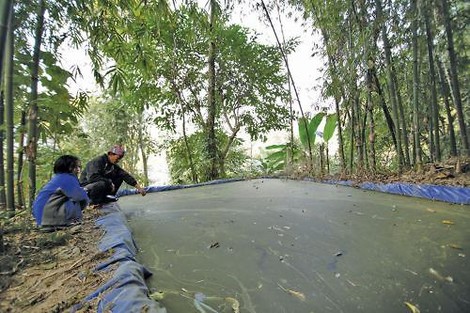Your podcast discovery platform
Curious minds select the most fascinating podcasts from around the world. Discover hand-piqd audio recommendations on your favorite topics.

piqer for: Climate and Environment Globalization and politics
Raksha Kumar is a multimedia journalist focusing on human rights, politics and social injustices. Since 2011, she has reported for The New York Times, BBC, Guardian, TIME, South China Morning Post, Foreign Policy, Scroll.in and The Hindu.
In March 2018, she was awarded the National Foundation for India Media Award for her reportage on land rights in India. In 2017, she was shortlisted for Kurt Schork Memorial Awards in International Journalism. For her work on land conflicts in India, she was awarded the Chameli Devi Award for Outstanding Media Personality in 2016.
As a reporter, her focus areas are land and forest rights of the most vulnerable communities. However, since these issues cannot be looked at in isolation, Raksha found herself increasingly reporting on armed conflict around resource extraction in places like Chhattisgarh and Kashmir.
In 2015, she wrote, shot and directed a documentary film on Rationalists in Contemporary India. It was aired by India's public broadcaster, Doordarshan. The film has been screened in 29 locations across the country until now.
The same year, Raksha was selected as a Chevening Fellow by the University of Westminster to research on Hindu Right in the UK. This helped Raksha build on her post graduate dissertation which was on Hindu Fundamentalists in India.
With a Fulbright Scholarship for Leadership Development, she went to the Columbia University in New York City to pursue a Masters in Science. As a student, she was offered the Scripps Howard Fellowship to report from Israel and the West Bank. Since 2011, Raksha has reported from 11 countries across the world.
Raksha worked as an editor at NDTV, leading English news channel in India. She was the editorial head of a two-hour prime time news show, where she lead a team of about 20 junior journalists.
A graduate of Lady Shri Ram College in New Delhi, Raksha was a dedicated student and a passionate public speaker.
India's Climate Quandary: Not Adapting To Change
India, being a largely agrarian country, wants to reduce the impact of climate change on its agriculture. With that in mind, eight years ago, the Federal Government launched National Innovations in Climate Resilient Agriculture programme.
Due to the impacts of climate change, agricultural productivity has stagnated. Recent studies reveal productivity losses of 4-6 per cent for rice; 6 per cent for wheat; 18 per cent for maize; 2.5 per cent for sorghum; 2 per cent for mustard; and, 2.5 per cent for potato in the last two decades. This decline is only expected to continue.
For a country of 1.3 billion people, food security is crucial. But, for a country where the average age is 27, so is reducing its carbon footprint.
Almost a decade later, many villages are ill prepared for the programme even now. Instead of focusing on efficient implementation, the government is cutting the programme's budget.
The problem is that this programme was meant to be the pilot for a pan-Indian climate change adaptation programme for all villages. If this fails, India will not be able to keep to its Paris Agreement commitments.
Read more about India's climate conundrum in this insightful article.
